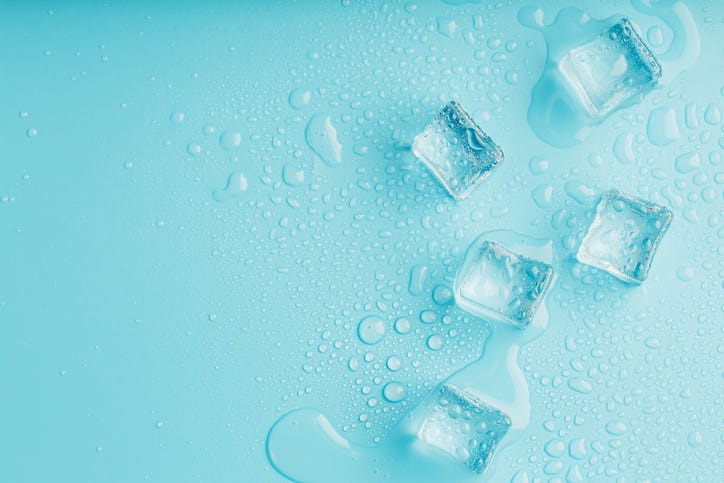
A group of California researchers has developed an ice cube that doesn't melt and can be reused. The ice is being called "jelly ice" and could help reduce the nation's food waste.
The researchers at the University of California Davis's Robert Mondavi Institute of Wine and Food Sciences are working to re-imagine the ice cube, creating something that stays just as cold for just as long.
While it stays just as cold, jelly ice has one key difference from regular ice; it has a gelatin membrane that traps water in its cube-like shape and doesn't let it melt.
Jiahan Zou shared with CBS News that on top of not making a mess, the version of ice can also be manipulated to take any form, which could help change how food is kept cold while transported.
"So here we have two pieces of salmon filet on top of ice—traditional ice and jelly ice. Here they've been out for about an hour already. So, you can see ice already melted, and then all around, it's the meltwater. So the fish basically sinks in a pot of water right now," Zou said to CBS News.
Associate professor Luxin Wang had originated the idea for jelly ice after visiting a fish market, realizing there needed to be a better way to keep things cool without the dangers of melted ice.
Inadequate climate control across the supply chain and cross-contamination are the leading causes of food waste. For example, a study from 2013 by the Global Environmental Change discovered nearly half of all seafood in the U.S. spoils before getting to the market.
Now thanks to Wang, the alternative could allow for less food waste. Not to mention the jelly ice isn't made out of plastic but a compostable protein. Wang reported that it is 90% water, 100% biodegradable, and can be reused up to a dozen times.
Wang and her team have been awarded a grant for $485,000 to continue their research into the jelly ice. But for those who want to stick with their frozen water on its own, she says it's easy for them to dispose of the jelly ice.
"If you don't want to use them, you can compost them and throw them in your garden. Once you mix them with the potting soil, they actually support the growth of your plant," Wang said.
LISTEN on the Audacy App
Sign Up and Follow Audacy
Facebook | Twitter | Instagram
